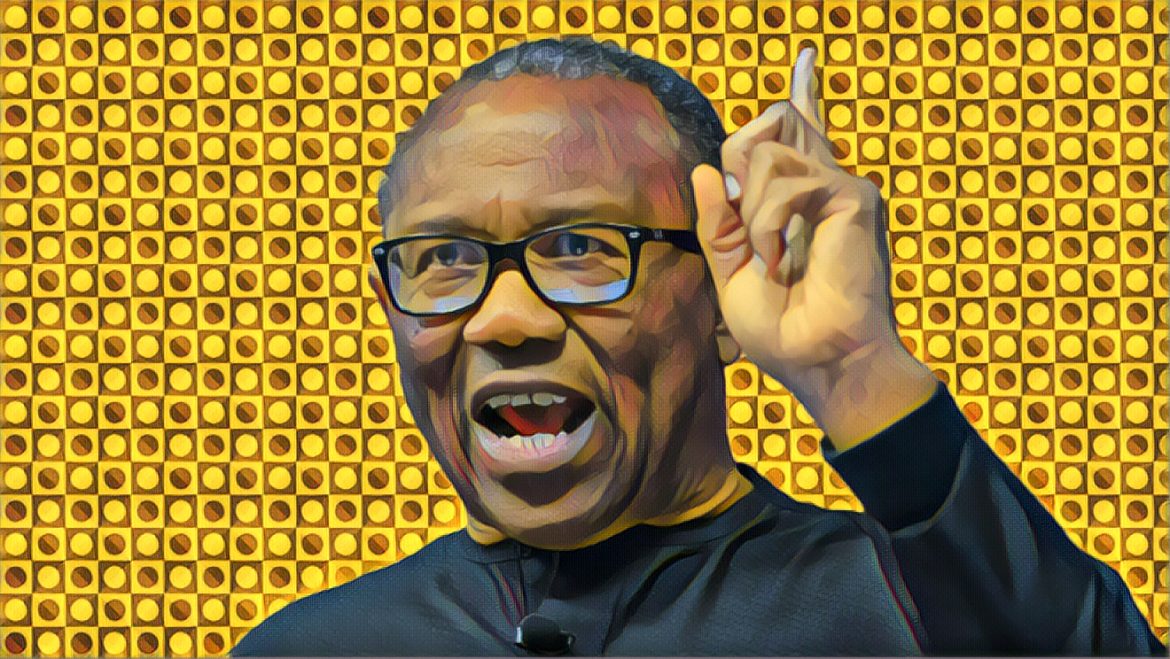Former governor of Anambra State and Labour Party presidential candidate, Peter Obi, has criticized the 2024 fiscal budget presented by President Bola Ahmed Tinubu to the National Assembly last week, calling it a “prodigal” spending plan that does not reflect the economic reality of Nigeria.
Obi took to his X handle to express his dismay at some of the “hefty allocations” in the budget, especially the N15 billion earmarked for the construction of a new residence for the Vice President, who he said is already “luxuriously housed” in Abuja and Lagos.
He also questioned the need for another N3 billion for the renovation of the Vice President’s residence in Lagos, noting that a similar amount was allocated in the supplementary budget earlier this year for the renovation of his Abuja residence.
Obi argued that the total sum of N20.5 billion budgeted for the Vice President’s housing could have been used to address more pressing issues such as poverty, health, education, and unemployment in the country.
He compared the budget provision to the annual salary of about 3000 professors in Nigerian universities, which he said is about N5 million each. He also lamented that the budget of N5 billion for student loans, which is yet to be disbursed, is only a fraction of the cost of the Vice President’s new home.
Obi cited the example of former Head of State, General Murtala Mohammed, who rejected the offer of a presidential mansion in Lagos and instructed that the land should be used to build blocks of flats for civil servants. He said that was the kind of “sacrificial leadership” that Nigeria needs at this critical time.
Obi urged public officeholders to show compassion and frugality in their service to the nation and to stop the “recklessness and insensitivity” to the plight of the masses.
He said Nigeria needs leaders who are willing to sacrifice for common progress and development, and who can lead the country to the “New Nigeria” that many Nigerians dream of.
Obi’s criticism of the 2024 budget comes amid widespread discontent and protests over the state of the economy, which has been hit hard by the global oil price slump, insecurity, corruption, and poor governance.
According to the World Bank, Nigeria’s economy is expected to grow by only 1.8 percent in 2024, after contracting by 3.2 percent in 2023. The bank also estimates that about 100 million Nigerians, or half of the population, live below the poverty line of $1.90 per day.
Many Nigerians have also expressed their dissatisfaction with the performance of President Tinubu, who came to power in 2023 with the promise of change and reform. Tinubu, a former governor of Lagos State and leader of the ruling All Progressives Congress (APC), has been accused of nepotism, authoritarianism, and failing to deliver on his campaign pledges.
However, some analysts and supporters of the government have defended the 2024 budget, saying it is necessary to boost infrastructure, create jobs and stimulate the economy. They have also praised the government for its efforts to diversify the economy, improve security, and fight corruption.
The 2024 budget, which has a total expenditure of N13.08 trillion, is based on an oil price benchmark of $57 per barrel, an oil production estimate of 1.86 million barrels per day, and an exchange rate of N379 to the US dollar. The budget has a deficit of N5.2 trillion, which is expected to be financed by domestic and foreign borrowing.
The budget is currently undergoing scrutiny and debate by the National Assembly, which has the power to approve, amend, or reject it. The lawmakers are expected to pass the budget before the end of the year, in line with the January-December budget cycle.


